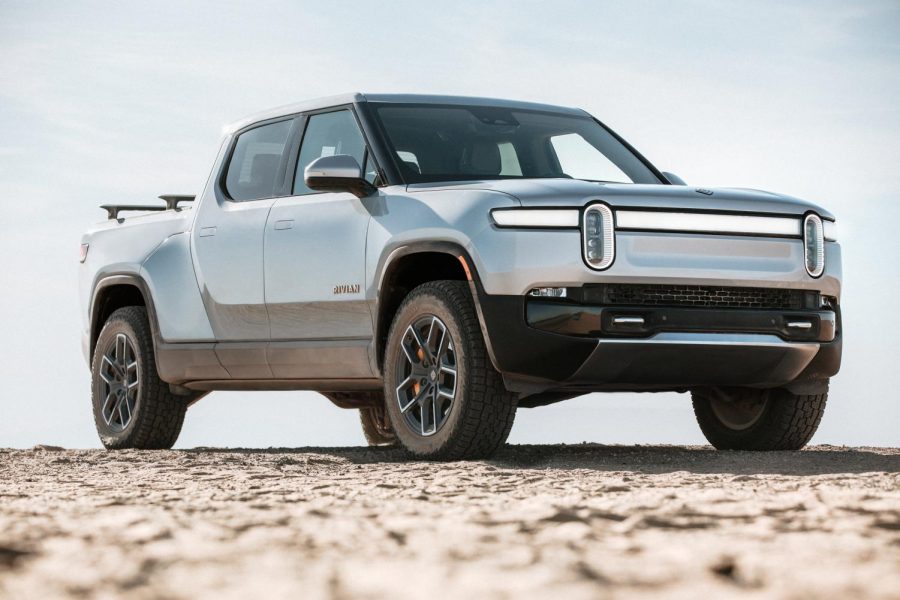With promises to boost the US economy and reduce climate change, electric vehicles have seemingly been embraced by the American public.
Tesla, the current leader of the EV industry, recently crossed $1 trillion in valuation after Hertz, a rental car company, ordered 100,000 Tesla Model 3 sedans. The deal sent Tesla stock (TSLA) into a frenzy, leaping over 40% in the month of October. Tesla CEO Elon Musk’s net worth is now above $300 billion as of Nov. 1.
The monumental deal with Hertz seems to indicate that the electric age is rapidly approaching. Or perhaps it is already here.
While Tesla is the biggest name in EVs, it is certainly not the only one. Some may even argue that it is losing the complete dominance it once had during the last decade. Volkswagen is making significant investments in the electric field. Its subsidiary Porsche released the Taycan, a fully electric four-door sports sedan, to rave reviews and an abundance of interest from the public.
In fact, in the first half of 2021, Porsche sold nearly 20,000 Taycan units globally. However, in the same span, Tesla managed to sell just over 5,000 units of their Model S sedan. Tesla’s Cybertruck, a bid to enter the electric truck market, was beaten to the punch by Rivian, a California EV startup.
Rivian’s fully electric pickup truck, the R1T, is the first of its kind to go into production. Customers are actually getting them delivered today, unlike the Cybertruck and the Ford F-150 Lightning which are still months away from fruition.
The R1T is a head-turning, spectacular piece of technology. According to their website, not only can it tow 11,000 pounds, but it also has serious off road capabilities. The R1T can wade through three feet of water and has a ground clearance of 14.9 inches. This complements the absolutely ludicrous acceleration: 0-60 mph in three seconds flat; that’s the same as a Ferrari 488 Spider.
However Rivian has more going for it than an enviable truck. Rivian just secured a deal with Amazon to supply them 100,000 electric vans through 2030. Amazon also holds a 20% stake in Rivian worth about $3.8 billion. Rivian is also coming out with an SUV, the R1S, later this year.
Rivian’s main manufacturing facility is in Normal, Illinois, a massive plant purchased formerly owned by Mitsubhishi. The plant was previously shut down, but at its peak with Mitsubishi, it gave jobs to 3,600 people. Now Rivian is once again creating jobs in the Normal area, revitalizing the local economy.
This is precisely what Democrats in Congress want to accomplish through a section of President Biden’s multi-trillion dollar jobs plan. As it stands, there is nearly $175 billion allocated to motivating Americans to buy EVs. This is in an effort to create US jobs by increasing the demand to buy EVs through tax credits and to establish more EV manufacturers in America.
Rivian’s off road trucks and vans, Tesla’s upcoming wicked-fast Roadster (0-60 in less than two seconds), and Tesla’s upcoming semi-truck are an indication of the bright future that could come from electric vehicles.
Senior Ryan Thoreson believes EV’s should not only be made for civilian use: “I think companies should focus on police cars, delivery trucks and semi trucks to convert to electric because they’re just driving all day which uses mass amounts of gasoline everyday,” he said.
While the public seems to have high hopes for EVs, they still face an uphill battle before they become the norm. Beyond waiting for battery technology to catch up to the appetite of the average consumer and creating a nationwide charging infrastructure that can vanquish what has been termed “range-anxiety” – doubts stemming from a lack of nearby chargers on a journey – there are many more boxes to check for EV manufacturers.
But perhaps the biggest roadblock right now is the sheer price of EVs which places them just outside the reach of the middle class. A new 2022 Tesla Model 3, their most affordable vehicle, starts at $43,900, thousands more than a new 2022 BMW 3-Series sedan. With modest options, Rivian’s R1T can burn a $70,000 hole in one’s pocket. It is hard to imagine a world where the average person can comfortably purchase an EV while prices remain in the mid-five digits.
Senior Carter Daugherty has been heavily invested in automation and robotics for years, with his robotics team, the Robo Minions, reaching the global level of the FIRST Tech Challenge this year. After following the electric car scene for years, he thinks that the biggest hurdle for EVs to overcome is that they have the wrong engine. “I know people who are really into cars, and the biggest thing they like is the internal combustion engine,” he said. “There’s a whole feeling to it that you just don’t get in the smooth, silent ride of a Tesla.”
With the EVs still yet to be established in the mainstream, time will tell whether or not they will eventually be the dominant mode of transportation, especially as the climate crisis worsens. Tesla and Rivian have captured the hearts of the public and high-profile investors alike, but it remains to be seen if they can deliver on the future that has been promised for years.









